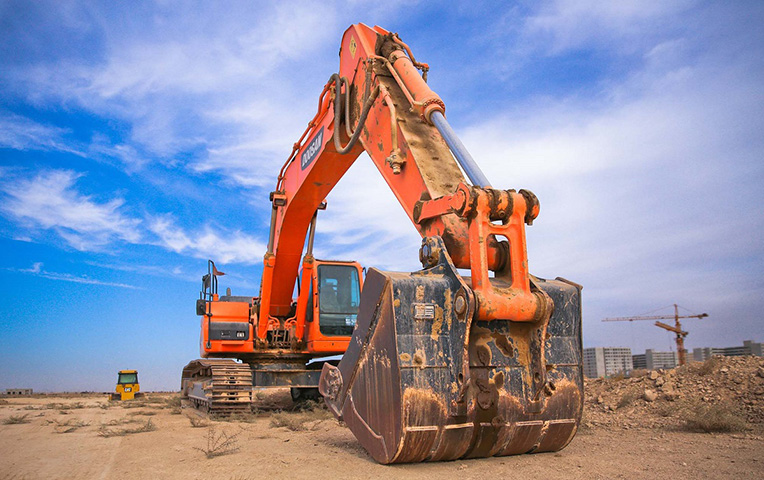Solar Designated
as an Essential Service in Illinois
On March 20,
Illinois Governor JB Pritzker signed an executive order instructing his
constituents to stay at home to limit the spread of COVID-19. All businesses
deemed "non-essential" were required to suspend operations, and all
travel not considered essential was prohibited.
After consulting guidance from federal agencies including the Centers for Disease Control, Department of Homeland Security, and Cybersecurity and Infrastructure Security Agency (CISA), the Solar Energy Industries Association (SEIA) determined that solar energy construction was considered an essential business and allowed to proceed.
“Workers
who maintain, ensure, or restore, or are involved in the development,
transportation, fuel procurement, expansion, or operation of the generation,
transmission, and distribution of electric power, including call centers,
utility workers, reliability engineers and fleet maintenance technicians.”
–excerpt from CISA’s published guidance for essential services
SEIA issued specific recommendations for installers, EPC’s, and O&M providers for avoiding viral transmission between contractors, potential customers, and partners. One example of these precautions is to ensure crews have the proper PPE and sanitizing equipment in their work vehicles. Additionally, solar energy site hosts and landowners would have to approve of any work conducted on their property during this period.
However, despite this guidance, many firms are open to interpret these orders as they see best fit, and even the Illinois Solar Energy Association (ISEA) has stated on its website, “each company needs to make its own determination if it considers itself an essential business under the state executive order.”
Can You
Dig It?
Since Gov. Pritzker’s executive order was issued, and while it might not be quite “business as usual,” Sol Systems has broken ground on several Illinois solar projects, moving forward to build project components such as fences and access roads. And, while the guidance does indicate that solar is an essential business, not all contractors have been able to complete the necessary tasks for Sol to continue its development plans to complete solar projects in Illinois.
For example, in the earlier stages of solar project development, two key goals are to
- Uncover information about the site, and
- Use that information to mitigate risk
What this looks like in practice is a series of site assessments that happen months or even years before solar energy construction can begin in earnest (and that’s if you are lucky). These site assessments are typically quite specific. They are completed by firms that offer specialized services, like environmental assessments, land surveys and records, and geotechnical assessments, which determine how to best design the solar array given the soil and rock on site. The assessments are typically a gating item to securing financing, locking in engineering plans, and starting construction. They are also, in theory, pieces of the project development puzzle that can reasonably continue during COVID (unlike, for example, a face-to-face customer meeting or an in-person zoning board meeting). Each firm is different and must assess their unique risk based on equipment used, operating procedures, distance travel, and crew size (to name a few factors). This is compounded by eagerness by employees to get back to work, and pressure by developers to push these items along by any firm that is able to safely complete on-site work.
The Plot
Thickens
To dig in
further on our Illinois sites under development, recently one project
experienced a small hiccup in which many of these specialized assessments were
completed as expected, but the full geotechnical assessment was halted.
Specifically, the contractor had implemented a company policy to stop all
on-site boring work (the type with a very large drill that shows us soil
profiles, not the type that makes you yawn) until the stay-at-home order is
lifted.
After this setback, we immediately got to work thinking of new ways to achieve our two goals of uncovering site information and using it to mitigate risk. For this project, what that meant was working with our partners to adapt to our new circumstances and constraints.
- Can we dig in further
to publicly available records? - What desktop analysis
can be completed? - Does the site host or
landowner have older copies of these site assessments from prior development
that they can unearth for us? - Do our contractor
partners have any relevant local knowledge that might be used?
For this project,
the answers to these alternative paths forward was “yes.” And, while these
approaches might not be adequate to finalize a construction design or satisfy
all investor criteria, they can help push projects ahead so we don’t lose much
ground.
A Resilient
Solar Industry
As of May 6th,
Gov. Pritzker had extended the stay at home order effective until May 29th,
and had announced a five-phase plan, “Restore Illinois” for gradually reopening
the state.
So, as we continue through uncharted territory, we will continue to support our state and national solar associations as they promote solar development as an essential service, while serving as an industry resource wherever we can provide value. Sol Systems can offer legal expertise about definitions or essential services, offer more detailed information about how to complete site work in all stages of the project pipeline safely, and continue to share ideas on creative solutions to mitigate project resources.
ABOUT SOL SYSTEMS
Sol Systems is a leading national solar energy firm with an established reputation for integrity and reliability across its development, infrastructure and environmental commodity businesses.To date, Sol has developed and/or financed over 850 MW of solar projects valued at more than $1 billion for Fortune 100 companies, municipalities, counties, utilities, universities and schools. The company also actively shapes and trades in environmental commodity and electricity markets throughout the United States. The company was founded in 2008, is based in Washington D.C, and is led by its founder. Sol Systems works with its team, partners, and clients to create a more sustainable future we can all believe in. For more information: www.solsystems.com



